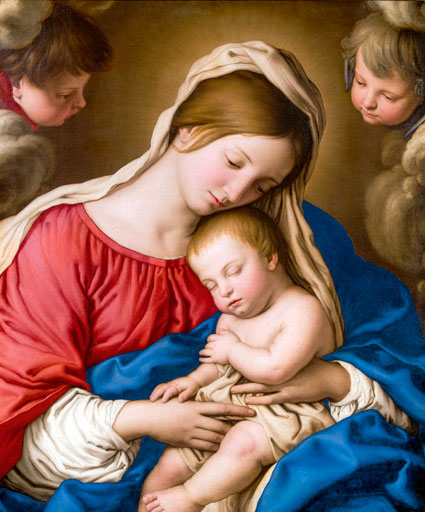Official Website of the
Catholic Diocese of Little Rock
We need a Savior and today we have one
Published: December 25, 2024
Click on the button above to learn about the many feast days and saints celebrated during the Christmas season as well as about the history of Christmas carols, suggested Christmas movies, Bible studies, prayers, blessings and more.
"'Do not be afraid; for behold, I proclaim to you good news of great joy that will be for all the people. For today in the city of David a savior has been born for you who is Messiah and Lord. And this will be a sign for you: You will find an infant wrapped in swaddling clothes and lying in a manger.' And suddenly there was a multitude of the heavenly host with the angel, praising God and saying: 'Glory to God in the highest and on earth peace to those on whom his favor rests.'" (Luke 2:10-14)
Merry Christmas! The word, "Christmas" is derived from the Greek, "Christos," which means "anointed one," and the Latin, "Missa," which means "to send." In other words, the anointed one is sent. This feast commemorates the birth of the Messiah, Jesus Christ. He was conceived by the Holy Spirit and born of the Virgin Mary. In doing so, God became flesh, making the salvation of the world possible.
 The incarnation, the feast of God becoming flesh, (the Latin "in carne" means "enfleshment") is the second most important feast of the liturgical year after Easter. Belief in the incarnation is a uniquely Christian teaching — the Divine choosing to become one of us, according to the U.S. Conference of Catholic Bishops (USCCB).
The incarnation, the feast of God becoming flesh, (the Latin "in carne" means "enfleshment") is the second most important feast of the liturgical year after Easter. Belief in the incarnation is a uniquely Christian teaching — the Divine choosing to become one of us, according to the U.S. Conference of Catholic Bishops (USCCB).
The basis for this belief comes directly from the Angel of the Lord, first in the Annunciation and later in a dream. "'Joseph, son of David, do not be afraid to take Mary your wife into your home. For it is through the Holy Spirit that this child has been conceived in her. She will bear a Son and you are to name him Jesus, because he will save his people from their sins.' All this took place to fulfill what the Lord had said through the prophet: 'Behold, the virgin shall be with child and bear a Son, and they shall name him Emmanuel, which means, 'God is with us.'" (Matthew 1:20-23)
"In other words, God is with us to save us," explained Bishop Anthony B. Taylor in a 2016 homily. "'God is with us' points to Jesus' identity as the Second Person of the blessed Trinity, while 'God saves' points to the reason for Jesus' birth: God will save us through him." That truly is good news of great joy!
"We need a Savior. And today we have one. 'For a child is born to us, a son is given us; upon his shoulder dominion rests! (Isaiah 9:5),'" proclaimed the bishop in his 2021 Christmas homily. "Bright days do lie ahead. In Jesus the reign of darkness has ended and the adversities we face are simply opportunities to take up our cross and follow him, and thus share also in his victory."




